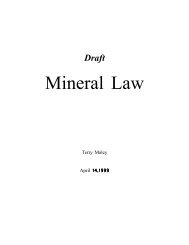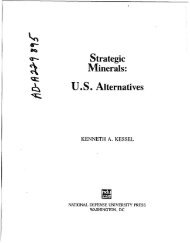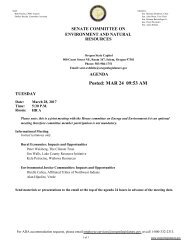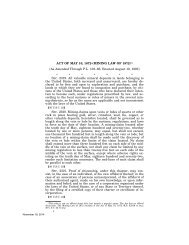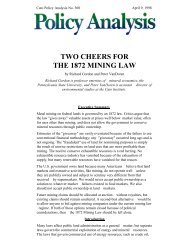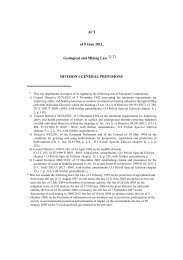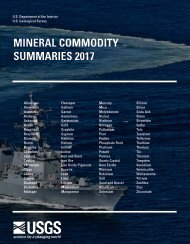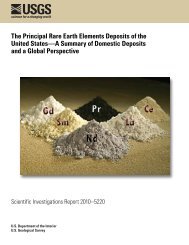tidwell-brief
TWIN CEDAR MINING DISTRICT LOCAL GOVERNMENT WITH HOME RULE HAVE TO DO GOVERNMENT TO COORDINATION AS MINING DISTRICTS ARE LOCAL GOVERNMENT
TWIN CEDAR MINING DISTRICT LOCAL GOVERNMENT WITH HOME RULE HAVE TO DO GOVERNMENT TO COORDINATION AS MINING DISTRICTS ARE LOCAL GOVERNMENT
Create successful ePaper yourself
Turn your PDF publications into a flip-book with our unique Google optimized e-Paper software.
etween the State’s rule and the ROD. The Court held that this<br />
failure to perform an element of coordination “significantly<br />
prohibits the public’s ability to understand the competing<br />
priorities of the Service and State”. The Court held that<br />
coordination requires far more than just listening to the<br />
position of the state or local government, that it requires the<br />
Service to analyze the inconsistent positions, discuss them and<br />
consider alternatives for resolving them.<br />
Had the Service been required only to “cooperate” with the<br />
State, the result of the decision would have been immensely<br />
different. “Cooperation” or the “cooperating agency” status<br />
does not include and require performance of all the specific<br />
elements spelled out in the definition of “coordination”.<br />
“Cooperation” does not meet the statutory requirement of<br />
coordination.<br />
2. COORDINATION IS NOT MERELY “CONSULTATION”<br />
A variety of commonly used dictionaries define the term<br />
“consultation” to mean “to ask the advice or opinion of another”<br />
or to “deliberate together”. The Forest Service could “consult”<br />
with a local government simply by talking to the governing body<br />
and listening to its position, opinion or advice. But, that<br />
would not satisfy the definition of “coordination”. As used by<br />
Congress and spelled out by the Secretary of Agriculture,<br />
“coordination” means far more than “consultation”. So said the<br />
Northern District federal court in California Resources Agency<br />
v. United States Department of Agriculture, supra.<br />
In California Native Plant Society v. City of Rancho Cordero,<br />
172 Cal. App. 4 th 603, 91 Cal Rptr 3d 571 (Certified for<br />
publication May, 2009) the California Appellate Court rejected<br />
an argument that a “coordination” requirement was satisfied by<br />
“consultation.” In that case the City of Rancho Cordero argued<br />
that “coordination” was satisfied when the city consulted with<br />
the United States Fish and Wildlife Service. It argued that it<br />
met its coordination responsibility by “trying to work together<br />
with [fish and wildlife] by soliciting, carefully considering,<br />
and responding to comments from the [Service].”<br />
16 | P a g e




